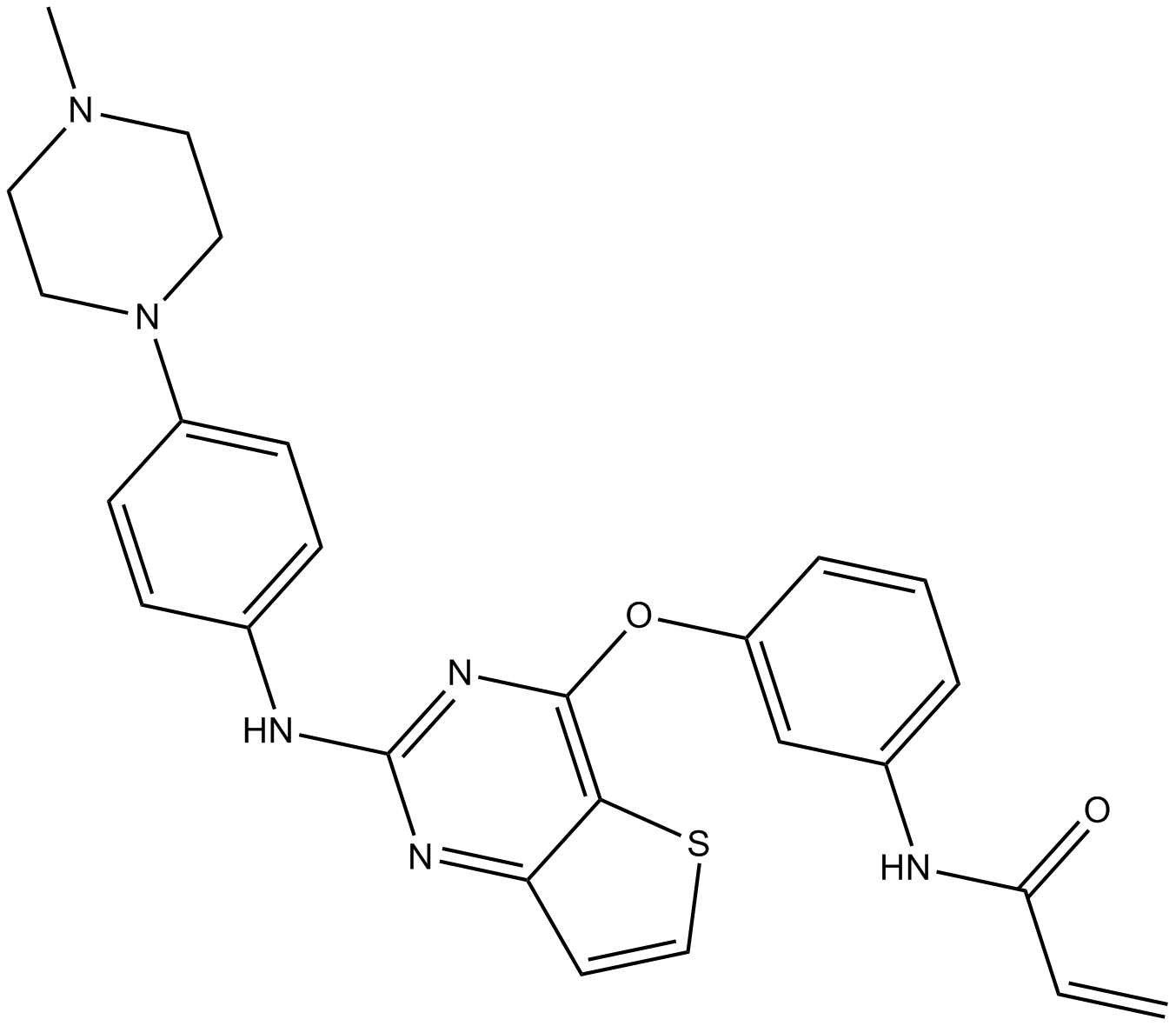Olmutinib (HM61713, BI 1482694) (Synonyms: BI-1482694, Olmutinib) |
| カタログ番号GC15370 |
オルムチニブ (HM61713、BI 1482694) (HM61713; BI-1482694) は、キナーゼ ドメイン近くのシステイン残基に結合する、経口活性で不可逆的な 3 番目の EGFR チロシンキナーゼ阻害剤です。オルムチニブ (HM61713、BI 1482694) は NSCLC に使用されます。
Products are for research use only. Not for human use. We do not sell to patients.

Cas No.: 1353550-13-6
Sample solution is provided at 25 µL, 10mM.
GI50: 9.2 and 10 nM for H1975 (L858-T790M) and HCC827 (exon 19 del.), respectively.
Olmutinib (HM61713, BI 1482694) is an EGFR mutant-specific inhibitor.
The tyrosine kinase inhibitors (TKI) against epidermal growth factor receptor (EGFR) are widely used in patients with non-small cell lung cancer (NSCLC). However, EGFR T790M mutation leads to resistance to most clinically available EGFR TKIs. Third-generation EGFR TKIs against the T790M mutation have been in active clinical development.
In vitro: Olmutinib has been identified as an irreversible kinase inhibitor and could covalently bind to a cysteine residue near the kinase domain of mutant EGFR. Olmutinib had a half-life of over 24h for EGFR inhibition. Olmutinib was able to cause potent inhibition in cell lines H1975 (L858R and T790M) and HCC827 (exon 19 deletion). Olmutinib showed a low potency for NSCLC cell line H358 with wild-type EGFR [1].
In vivo: The previous in vivo studies of xenograft models with grafts of H1975 and HCC827 showed that olmutinib was active against the tumors without dasplaying any side effects [1].
Clinical trial: In the ongoing phase I/II study of olmutinib in patients with advanced NSCLC who had failed previous EGFR TKIs, EGFR mutated patients received olmutinib doses ranging from 75 to 1200 mg/day. In the phase II expansion part of the study, 800 mg QD was the dose given to patients. The ORR was 58.8% in the 34 patients who received olmutinib with a dose more than 650 mg. Moreover, 10 patients had unconfirmed partial responses, and 13 showed disease stabilization. DLTs included GI symptoms and elevation of alanine aminotransferase, aspartate aminotransferase, amylase, and lipase. Thus, olmutinib could represent another promising drug for patients with T790M-positive NSCLC [1].
Reference:
[1] Wang S, Cang S, Liu D. Third-generation inhibitors targeting EGFR T790M mutation in advanced non-small cell lung cancer. J Hematol Oncol. 2016 Apr 12;9:34.
Average Rating: 5 (Based on Reviews and 38 reference(s) in Google Scholar.)
GLPBIO products are for RESEARCH USE ONLY. Please make sure your review or question is research based.
Required fields are marked with *




















